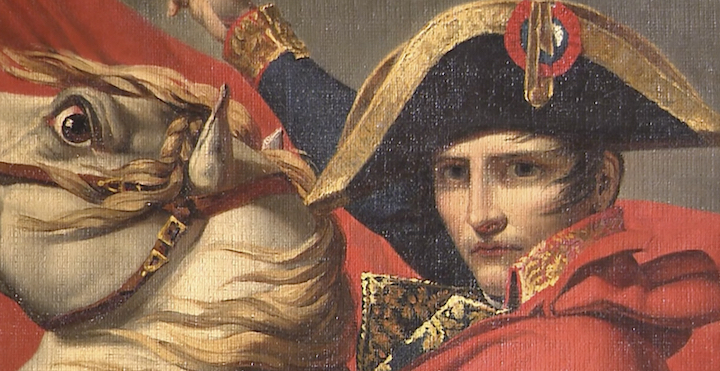1792, the Kingdom of France declares war on the European powers and the first coalition war breaks out. The guns wreak havoc and tens of thousands of wounded fall on the battlefield. They are bleeding, but no military doctor comes looking for them to help them.
In the old regime, before the French Revolution, the health service was one step away from the battlefield. This service did not intervene during the battle. It was necessary to wait for it to be over, for the fighting to be over, for the two armies to withdraw and only afterwards it was possible to go and look for the wounded who could die for several days before they could be saved.
Dominique Larrey, battlefield surgeon
Dominique Larrey is a young 26-year-old surgeon who will upset the established order. He can no longer bear to be a spectator of this carnage without even taking action.
You have to go quickly, he is the first to have the idea of an emergency, you have to pick up the wounded immediately, take a horse and a cart to go among the troops.
He thinks of putting these wounded in the ambulance to bring them back to the infirmary which is a little to the rear and from there he begins his work.
Amputations without anesthesia
Dominique Larrey can now transport the equipment thanks to the ambulance and treat directly on the battlefield. With this system, 80% of the soldiers he treated during the second Prussian campaign survived. At the time, amputation was the only treatment for gangrene.
When you had to cut at the thigh, it lasted 3 minutes, 3 and a half minutes, you had to go very quickly. This operation was undergone in horrible suffering. Anesthesia did not yet exist.
The retractor is used to lift muscle masses, especially the femur. After cutting the skin and muscles, an assistant passed the retractor to lift the flesh so that the surgeon could saw high enough. If it was not sawn high enough, the bone could go beyond the muscle area and the stump could never heal.
A neglected health system
The health system inherited from the French Revolution is abandoned. Anyone could claim to be a doctor because there were no more diplomas, no more exams, no more studies.
It gave absolutely considerable anarchy and nothing could work. The population was very poorly cared for by people who were not honest.
“Bonaparte has the genius to surround himself with competent people. He will, in a way, take on a minister of health at the time. Corvisart is an exceptional man who will permanently advise Bonaparte on what to do in medicine” explains Professor Fabiani.
Creation of faculties of medicine
On the advice of the famous doctor, Bonaparte put an end to the freedom to practice medicine without a diploma, in 1803.
“Bonaparte will recreate health schools which will become medical schools. He will then recreate faculties with professors who will be selected by competitions, with students who take exams. Without exams, no possibility of becoming a doctor . So he created the profession of doctor with a doctor’s degree. He created an extremely solid framework for hospital administration that would last for at least two centuries. “
It is also thanks to Bonaparte that today hospitals are managed by the municipalities, that boarding schools exist and that being a midwife is a profession in its own right.
 Cherry tomatoes contaminated with salmonella: 92 sick and 1 dead
Cherry tomatoes contaminated with salmonella: 92 sick and 1 dead  A better coaching method can make a person grow
A better coaching method can make a person grow  What is the method to prevent diabetes in children?
What is the method to prevent diabetes in children?  What are the effective factors in causing stomach ulcers?
What are the effective factors in causing stomach ulcers?  Why do embarrassing memories seem to appear at night?
Why do embarrassing memories seem to appear at night?  The amazing link between SARS-CoV-2 infection and newly started diabetes
The amazing link between SARS-CoV-2 infection and newly started diabetes  WHO says monkey pox is not a global emergency right now
WHO says monkey pox is not a global emergency right now  Single cell RNA sequencing uncovers new mechanisms of heart disease
Single cell RNA sequencing uncovers new mechanisms of heart disease  Hepatitis of unknown origin: 3 new deaths and 228 cases worldwide
Hepatitis of unknown origin: 3 new deaths and 228 cases worldwide 